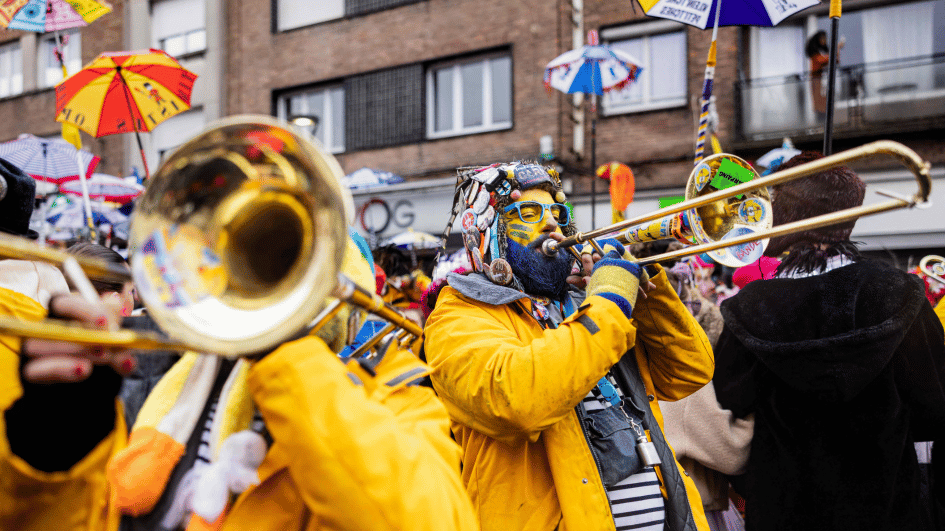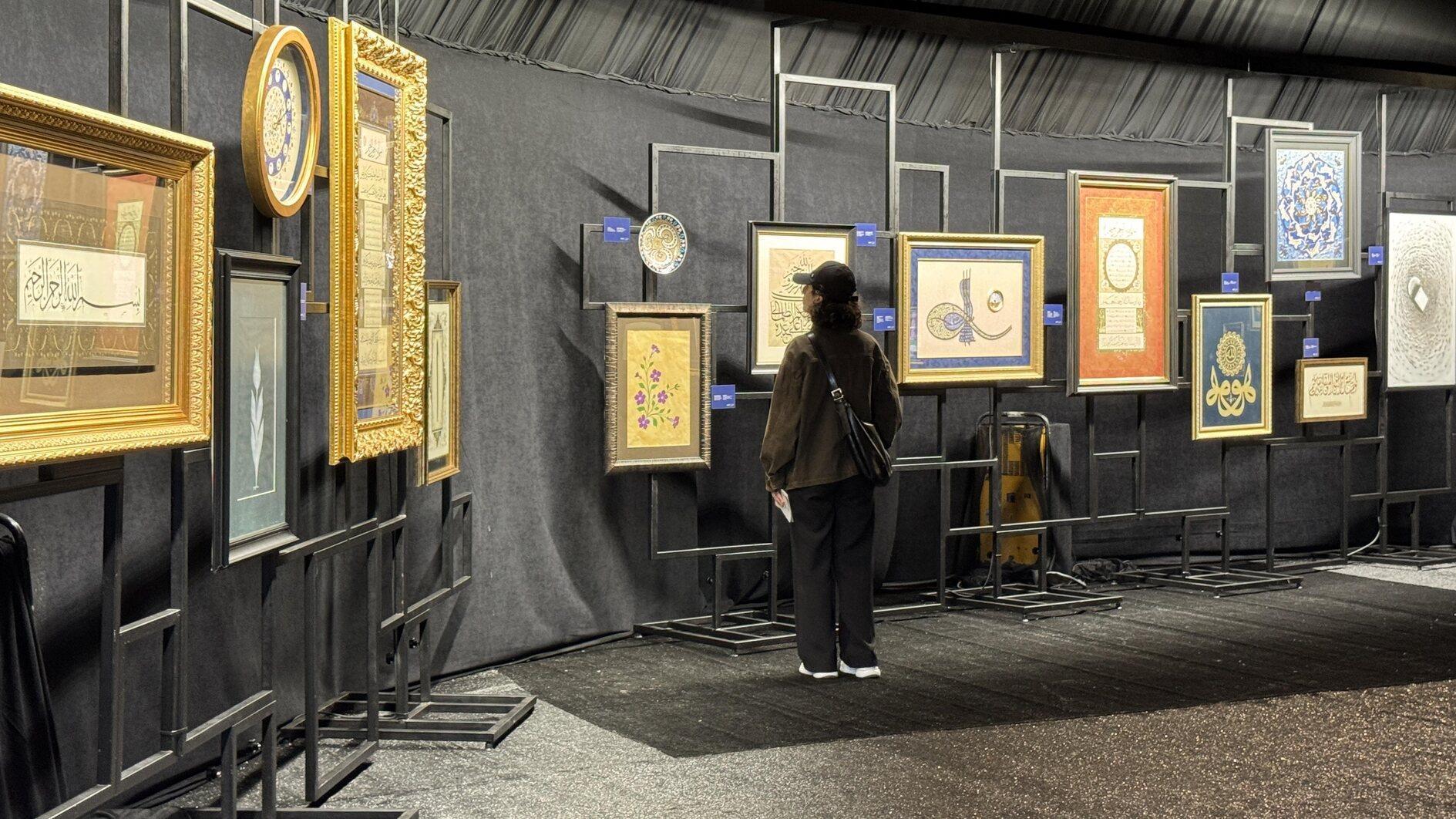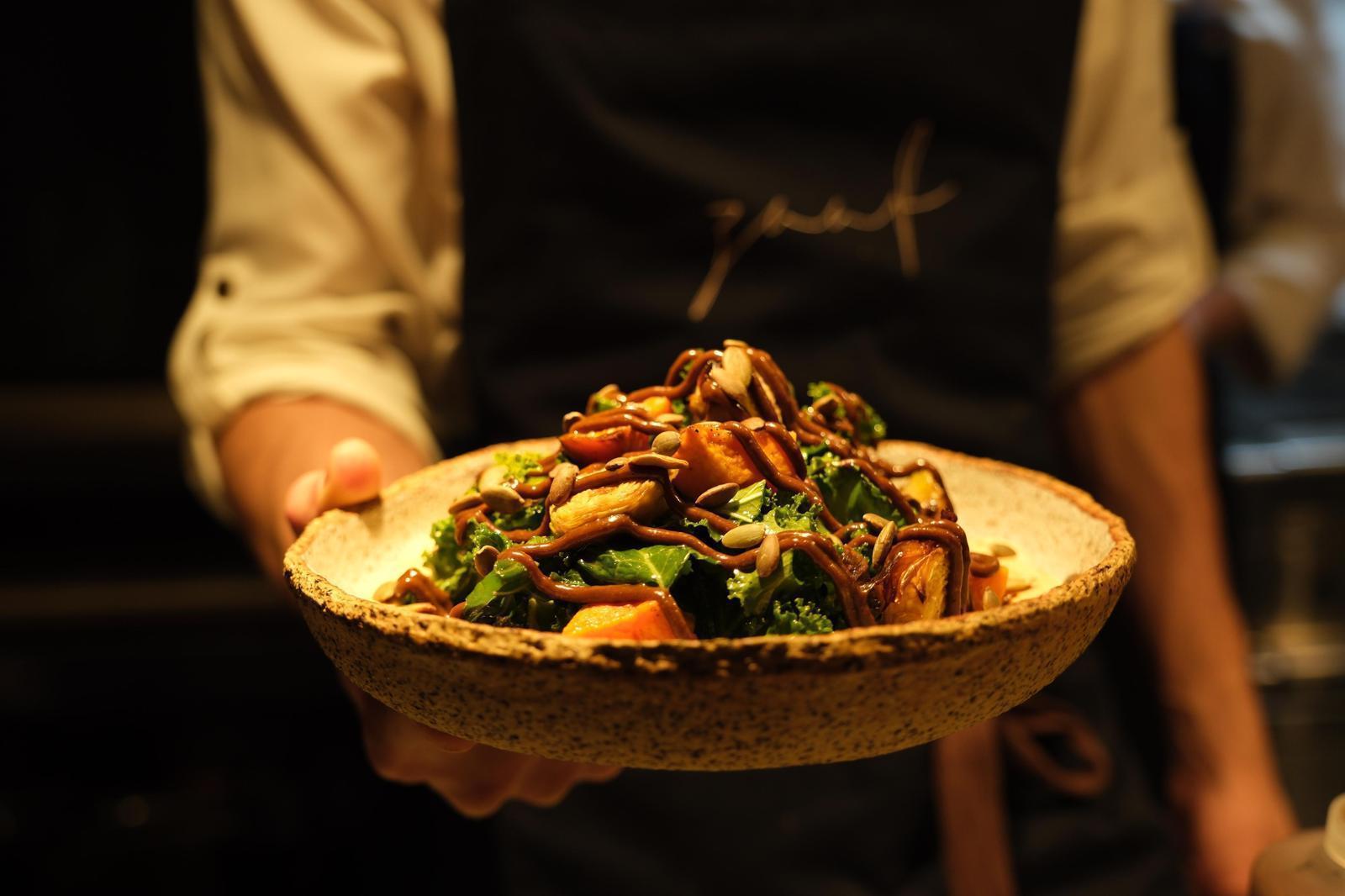Dunkirk’s annual carnival embraces madness and merriment
DUNKIRK

France's northern seaside city of Dunkirk is revelling in its increasingly popular annual carnival where tens of thousands dress up in eccentric outfits, dance in the streets and catch herrings outside the town hall.
Revellers with painted faces, many sporting tall umbrellas, fur coats and colourful hats adorned with pheasant feathers, on Feb. 11 sang songs at the top of their lungs under a grey sky.
The carnival is becoming an increasingly popular attraction in Dunkirk, a city just west of the Belgian border best known to foreigners as the site of the 1940 evacuations of Allied soldiers in World War II.
"Carnival is a religion, it's a communion. Everyone keeps in step. Everyone has fun," a man who gave his name as Laurent told AFP, as chanting participants streamed past behind him.
Crowds jostled under the balcony of the mayor's office, trying to catch the 500 kilograms worth of smoked herrings that municipal workers tossed down below.
Demanding the herring they merit is a tradition upheld by the locals. A real struggle occurs as the crowd looks to snag their own herring.
The carnival is said to date back to the 17th Century, first mention in 1676, originally a warm send-off for local fisherman about to embark on six-month long sea trips to catch cod off the coast of Iceland. Ship-owners would offer a "Foye", a grand party before the fishermen’s departure.
The herring throwing was introduced by the city's merchants in the 1960s.
In the present day, the festivities may take place from January to March, comprising of parades on weekend days in Dunkirk and nearby villages.
The carnival takes place on the "Three Joyful Days," the Sunday, Monday and Tuesday preceding Ash Wednesday, a Christian holiday of prayer and fasting.
Lydie, a carnival goer, said the party was a great social leveller.
"There are no lawyers, no doctors, no garbage collectors. Everyone is the same," said the woman in a green feather hat, who did not give her second name.
But the parade does have some rules.
"Carnaval is a big mess, but it's an organised mess," said drum major Michel Vandaelinghem, who has been taking part for 37 years.
When the festival made its comeback last year after three years of cancellation due to Covid, organisers frowned upon the behaviour of many teenagers, whose boisterousness put themselves and others at risk.
Late last month, Vandaelinghem visited a middle school in the port city's Petite-Synthe neighbourhood to better prepare the younger generation.
Around 100 students practiced linking arms to form the "chahut", a human cordon to protect the marching band from oncoming crowds.
When the music stopped, several teenagers said they had been kicked by mistake, and one limped to a chair to sit down.
In the crowds on Sunday, Caron Davy, 47, had come to celebrate with his eight-year-old son Nyno despite the drizzle.
"It can be dangerous if you head into the chahut," he said, wearing a blond wig and sparkly bra.
But it was safe if you knew how to navigate the crowds, he explained, adding Dunkirk's children start practicing from a young age.
"They start in kindergarten... with carnivals indoors," he said.
Elsewhere in the parade, Chloe Duquenoy, 42, said newcomers were making it more difficult to march safely.
"Often tourists drink too much and don't know how it works. They shove forward when you're not supposed to... which is dangerous," she said, sporting a white fur coat with black spots.
"You're only meant to push when the brass instruments play."
First-timer Lisa Chavriacouty admitted she didn't understand how the crowd worked.
"We're lost," said the 21-year-old in a disco-themed costume. "We were in the crowd for a bit but then we got confused and found our way out."
Francis Duyck, from the mayor's office, said this year organisers had chosen wider streets for the procession route to avoid any crush.
As for any newbies, "it's up to us, Dunkirk residents, to act as ambassadors" and show them the ropes, he said.
The Dunkirk Carnival this year officially started on Jan. 6. However, the event is expected to peak from Feb. 10 until Feb. 18.
















